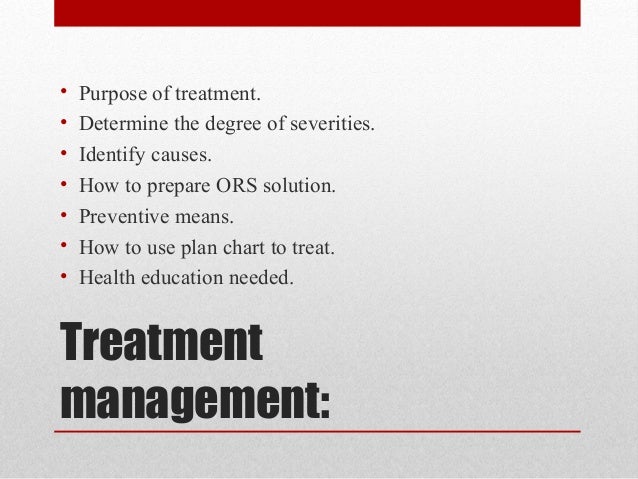What Is The Management Of Food Poisoning
You may also be at a higher risk if you. Symptoms of food poisoning include.
 Acute Gastroentritis Food Poisoning
Acute Gastroentritis Food Poisoning
Harmful chemicals may also cause food poisoning.

What is the management of food poisoning. Eat when you feel ready but start with small amounts of bland nonfatty. These pathogens can also spread via contaminated surfaces or. A high temperature of 38C or above.
19042021 Drink water broth or an electrolyte solution which will replace the minerals that you lose with vomiting and diarrhea. Pregnant women young children the elderly and those with an illness are more at risk of food poisoning. 26062020 To prevent food poisoning at home.
17 rows 01092015 Empiric treatment should focus on symptom management rehydration if. Food poisoning is rarely serious and usually gets better within a week. Food poisoning bacteria can multiply very quickly particularly in certain conditions.
Proper nutrition in pregnant women is essential to helping their babies develop. For food poisoning other than botulism two homeopathic remedies either Arsenicum album or Nux vomica are strongly recommended. Usually the body can manage food poisoning on its own by expelling the toxins that are making you sick.
07032019 What is food poisoning. An electrolyte replacement fluid can be made at home by adding one teaspoon of salt and four teaspoons of sugar to one quart of water. Food poisoning is most often acute meaning it happens suddenly and lasts a short time.
In some cases over-the-counter medicines may help relieve your symptoms. Food poisoning also called foodborne illness is an infection or irritation of your digestive tract that spreads through food or drinks. Have a chronic medical condition such as kidney disease or diabetes.
Re-hydration is the main key in the management of food poisoning. Empirical therapy using antibiotics may be considered in high risk patients such as elderly immunocompromised diabetes liver cirrhosis or intestinal hypomotility. Check if you have food poisoning.
You can treat food poisoning by replacing lost fluids and electrolytes to prevent dehydration. Feeling sick nausea diarrhoea. Being sick vomiting stomach cramps.
Food poisoning occurs when a person ingests food that has been contaminated by a pathogen. Wash your hands well with warm soapy water before and after handling or preparing food. The effects can range from unpleasant to severe to life-threatening.
Foodborne illness more commonly referred to as food poisoning is the result of eating contaminated spoiled or toxic food. Use hot soapy water to wash utensils cutting boards and other surfaces you use. What is food poisoning.
If you become severely dehydrated from vomiting or diarrhea you may need to receive IV liquids through a vein at the hospital. Children and the elderly are most likely to get food poisoning. For this reason any signs of food.
When you have food poisoning you may vomit after you eat or lose your appetite for a short time. Take care when preparing storing or serving food especially potentially high-risk foods. Doctors may prescribe antibiotics to treat food poisoning caused by certain bacteria.
You can normally treat yourself or your child at home. 02042020 Listeria food poisoning has been shown to hurt the development of unborn babies. An important area of activity is promoting the establishment and strengthening of poisons centres - work carried out under the IPCS INTOX Programme.
A world directory of poisons centres is maintained. Keep raw foods separate from ready-to-eat foods. The IPCS programme on Poisoning Prevention and Management seeks to build capacity in countries to deal with these problems.
09042020 Food poisoning is a condition that comes and goes. Viruses bacteria and parasites cause most food poisoning. However one person may be more likely to get food poisoning than another.
19062018 The best way to prevent food poisoning caused by infectious agents is to practice strict personal hygiene cook all foods adequately avoid cross-contamination of raw and cooked foods and keep all. Food poisoning or foodborne illness is a blanket term for illnesses that occur as a result of ingesting contaminated food or drinks. Wash your hands utensils and food surfaces often.
 Best Ways To Treat Food Poisoning Apollo Hospitals Blog
Best Ways To Treat Food Poisoning Apollo Hospitals Blog

Comments
Post a Comment